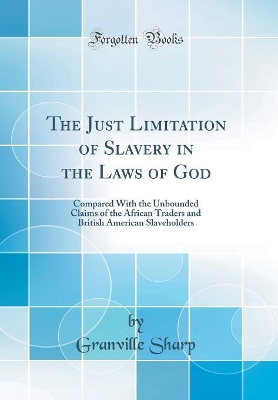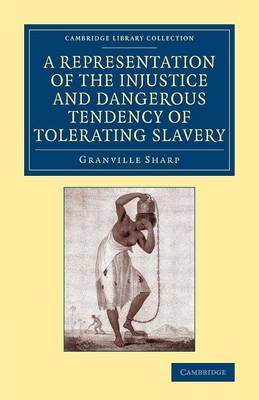Cambridge Library Collection - Slavery and Abolition
3 total works
Self-educated in languages and the law, the author Granville Sharp (1735-1813) was a leading anti-slavery campaigner. Though many of his associates in the abolitionist movement were dissenters or freethinkers, he was an Anglican very much concerned with the fate of the church in America after the war of independence. His family consigned his archives to the painter, playwright and author Prince Hoare (1755-1834), who published this biography in 1820. Sharp is less well remembered than other British abolitionists such as Clarkson and Wilberforce, but it was his work which, in 1772, brought the landmark case of James Somerset before Lord Mansfield, who upheld Sharp's legal arguments: as a result, it was henceforth understood that any slave reaching the shores of England became free. Sharp's continuing work for abolition, and his many other charitable and scholarly activities, are detailed in this fascinating work, drawn directly from his own writings.
The author and campaigner Granville Sharp (1735-1813) was born in Durham to a religious family. In 1765, a chance encounter with a slave, Jonathan Strong, sparked the serious interest in abolitionism that in due course saw him become a founding member of the London committee of the Society for the Abolition of the Slave Trade. Due in part to his efforts and writings, the anti-slavery movement in Britain gained public attention and became a more focused and organised campaign. This tract, originally published in 1776, is one of several anti-slavery works that Sharp produced in that year. A rigorous defence of liberty and of 'the honour of holy Scriptures', it is a riposte to the idea that slavery is sanctioned by God, citing the biblical doctrines of 'Thou shalt not oppress a stranger' and 'Love thy neighbour as thyself'. Also included are several appendices of material relating to the abolitionist cause.
A Representation of the Injustice and Dangerous Tendency of Tolerating Slavery
by Granville Sharp
Published 17 July 2014
This work by the anti-slavery campaigner Granville Sharp (1735-1813) brings together legal and historical documents, as well as the author's own legal arguments, demonstrating that slavery was illegal and therefore could not be upheld in England. Furthering his own intellectual development while working for a linen draper, Sharp later became a government clerk and pursued a writing career. His awakening to the horrors of the slave trade resulted from a chance encounter with an injured slave seeking help from his physician brother. Carrying out the necessary legal research, Sharp published this book in 1769 to demonstrate that slavery has no basis in English law. In 1772, the landmark case of James Somerset was brought before Lord Mansfield, who upheld Sharp's contention: as a result, it was henceforth understood that any slave reaching the shores of England became free. Sharp's memoirs of his life are also reissued in this series.


